Write a letter to your 100-year-old self.
Dear Centenarian Superstar (a.k.a. My Time-Defying Twin),
Holy guacamole, you *actually* hit 100! Did you chug from the Fountain of Youth, replace your morning coffee with nanobot smoothies, OR—wait—did those chaotic “alchemy experiments” in the garage *finally* pay off?! Tell me you found the Philosopher’s Stone wedged between the couch cushions. Did you transmute lead into wine (or at least into decent retirement funds)?! I always knew your obsession with glowing mason jars and cryptic symbols would outshine St. Germain someday. Bet he’s *fuming* in his immortal fancy-pants castle while you’re over here turning dust into diamonds and still forgetting where you left your keys. Legend.
Let’s address the elephant in the room: How’d you afford this? Did you perfect that “retired” bank heist and license your alchemy patents? (“Eternal Youth , now with free Wi-Fi!”) Or did you just challenge Death to a chess match… using pieces made of solid gold you whipped up in the microwave? I’m picturing you now: part mad scientist, part cryptid, dodging expiration dates and historians trying to fact-check your “I knew Shakespeare” stories.
, now with free Wi-Fi!”) Or did you just challenge Death to a chess match… using pieces made of solid gold you whipped up in the microwave? I’m picturing you now: part mad scientist, part cryptid, dodging expiration dates and historians trying to fact-check your “I knew Shakespeare” stories.
But surviving a century? Please. You didn’t just survive—you alchemized chaos into charisma. Between reverse-engineering immortality elixirs and teaching parrots to say “Avada Kedavra” as a party trick, you’ve basically turned existence into a DIY craft project. Did you train by arm-wrestling vampires? Or just perfect the art of napping so hard you confused the Grim Reaper with a door-to-door salesman? Either way, you’ve earned your crown in the “Sassy Centenarian Hall of Fame.”
Now, the big question: What’s next? 200? Why not! You’ve already beaten St. Germain at his own game (take that, 18th-century drama llama). Next stop: selling “How to Out-Alchemy Your Enemies” masterclasses on Skillshare. Or maybe just trolling future historians by leaving fake ancient artifacts in your backyard. Remember, aging is mandatory, but maturity is optional—keep hiding whoopie cushions in nursing homes and explaining TikTok to confused robots.
You’re proof that life’s a wild ride, and the seatbelt’s just a suggestion. Keep raging against the dying of the light… or at least keep the light on past 8 p.m. You’ve got this, you magnificent, slightly-radioactive legend.
Now go update your bucket list with a “beyond 100 List.”
—Your Zestier, Less-Wrinkled Former Self
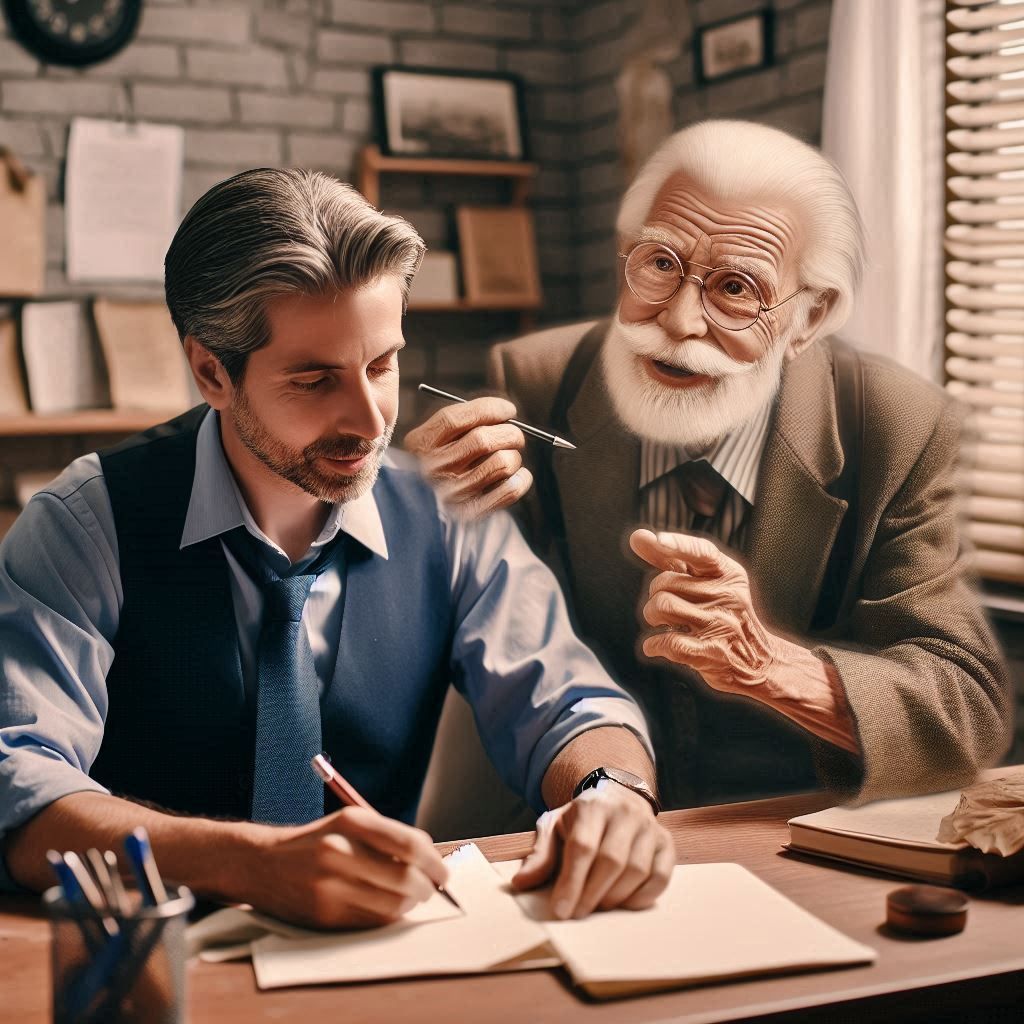
P.S. If you did rob a bank, teleport me a clue back in time. I’ve got student loans.
P.P.S.St. Germain’s ghost just slid into my DMs. He wants a rematch. I told him you’re busy inventing time travel and/or perfecting margarita recipes. Priorities.
P.P.P.S. Aim for 200. I’ll meet you there. (As a cyborg. Or a sentient cloud of your finest alchemy fumes. Let’s stay *weird*.)
© Jurgens Pieterse. All Rights reserved. 2025
What is your middle name? Does it carry any special meaning/significance?
Let’s dive into this holy hot mess. My parents, armed with the audacity of a televangelist selling miracle water, baptized me with a name so sanctified it could guilt-trip a gargoyle. First name: George (patron saint of “I’ll slay dragons after my nap”). Middle name: Johannes (props to John the Baptist, the OG influencer of locust snacks and river baptisms). Surname: Peter (the apostle who ghosted Jesus harder than a Tinder date). Combine them, and you’ve got *St. George St. John St. Peter*—a trifecta of piety so potent, I’m basically the Bible’s answer to a group chat gone wrong.
The expectations? Biblical. I’m supposed to part seas, but I can’t even part with my Amazon cart. My ancestors? A parade of George-Johannes-Peters who treated “sainthood” like a Yelp review they forgot to leave. Great-Grandpa George III once “exorcised” a whiskey bottle by draining it. Grandpa Johannes II rode through a rebellion war on horseback, though rumor says his horse had better survival instincts than he did. And Dad? His garage sermons featured more F-bombs than a Tarantino script, usually directed at a carburetor that “had a demonic possession.”
But hey, tradition is tradition! So I yeeted this sacred hot potato to my son. Plot twist! The kid’s gay, which means:
1. Heaven’s got a *fabulous* new interior designer.
2. He took one look at our family’s “legacy” and declared, “Honey, I’ve Van Gogh’d this name masterpiece. Let’s not add a fifth George—this canvas is done.”
Fair. The kid radiates more divinity eating avocado toast than we’ve collectively mustered since the Middle Ages.
So here I am, sipping a sacramental energy drink, whispering Hail Marys over my lost genealogical burden. St. John, if you’re eavesdropping: I’ll honor you by not eating bugs. Probably.
Amen.
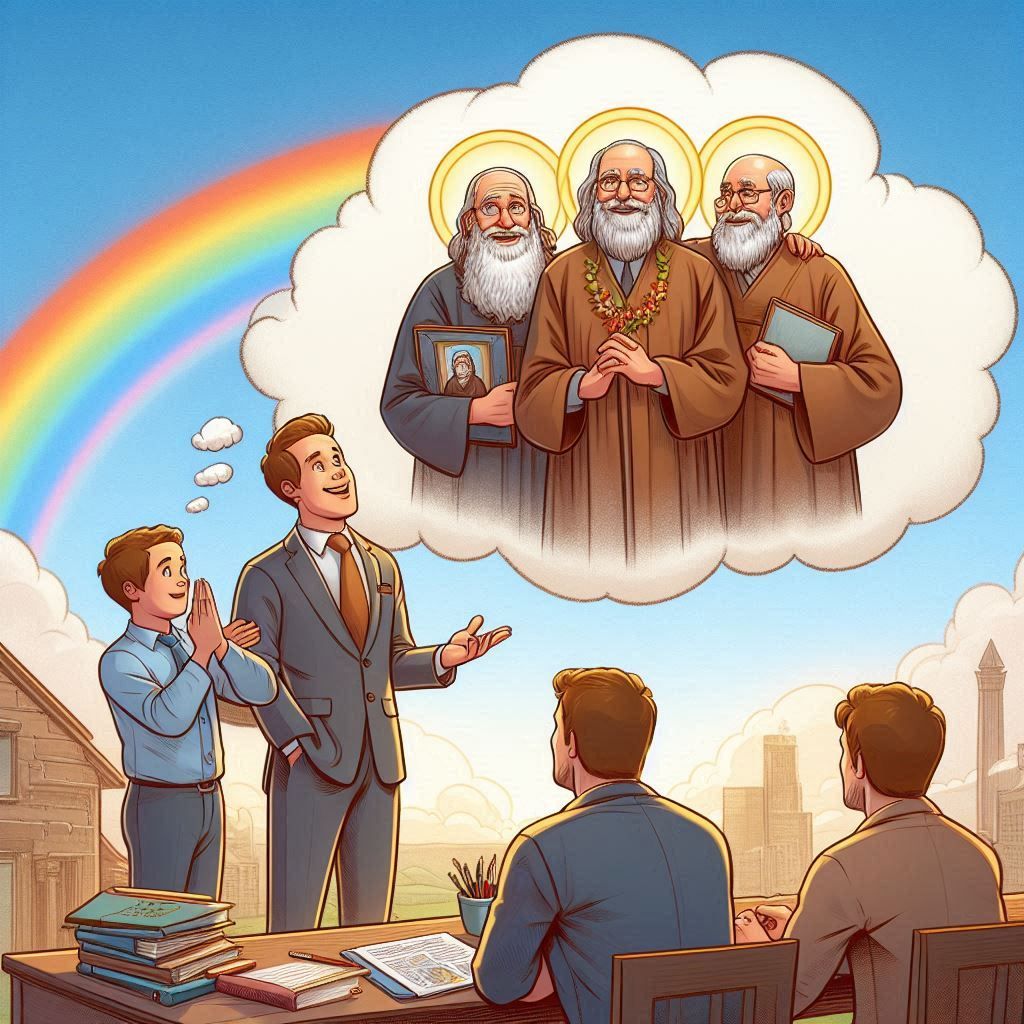
**#SaintedNotSaintly #GodsFavoriteTrainwreck #DontBlameMeBlameGenealogy**
© Jurgens Pieterse. All Rights reserved. 2025
What is the last thing you learned?
What did I learn last? That light has been transformed into a supersolid for the first time. That’s right—scientists have managed to make light behave like both a solid and a superfluid at the same time. If that sounds like something straight out of science fiction, I had the same reaction.
Physicists achieved this by trapping light inside an ultra-cold quantum gas of rubidium atoms, creating what’s known as a Bose-Einstein Condensate (BEC).
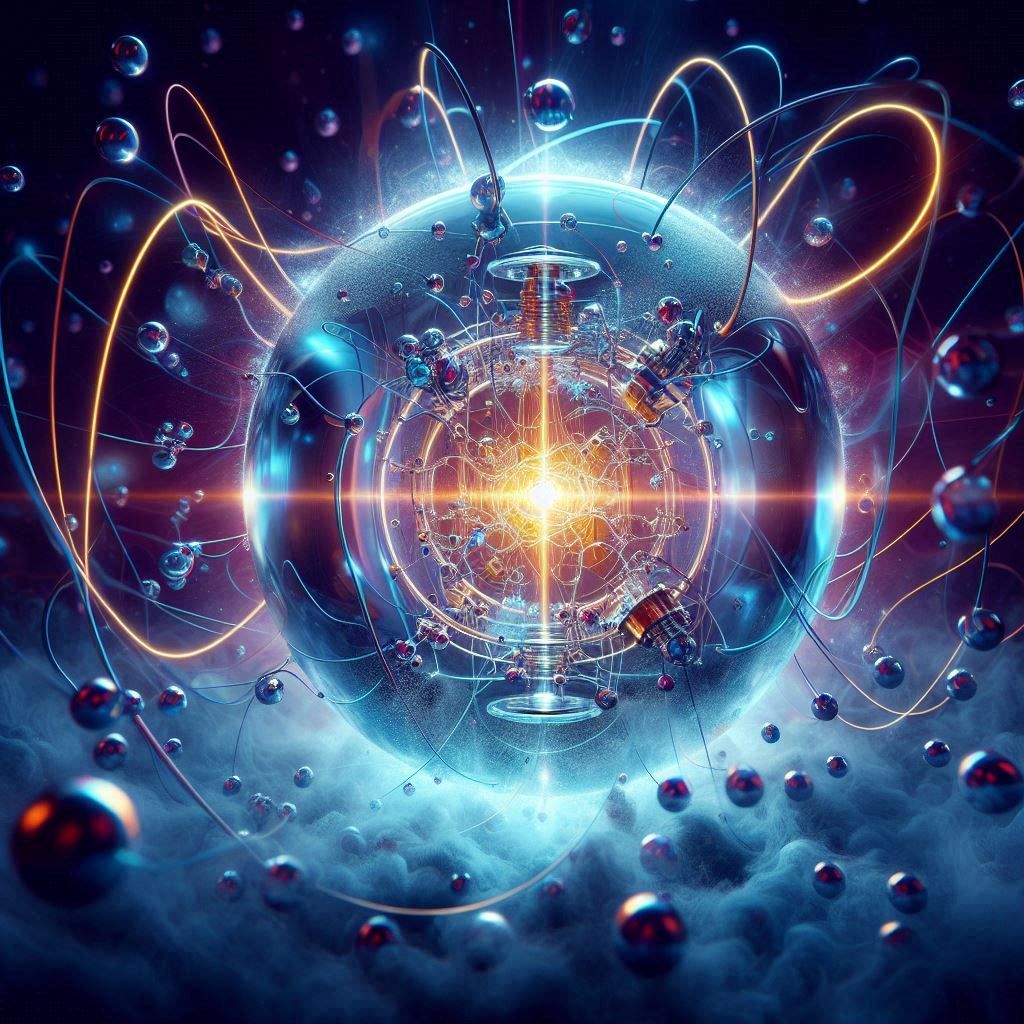
This is a state of matter where particles behave as a single quantum entity. By carefully engineering interactions between the photons and the atoms, they got light to form a supersolid—something that maintains a rigid structure like a solid but can also flow without resistance, like a superfluid. Imagine honey that holds its shape like a crystal but still moves effortlessly. That’s essentially what’s happening here.
This is a huge deal for a few reasons. First, it confirms that light can exist in a completely new state of matter, something never seen before. Second, it challenges our understanding of quantum physics—light has always been tricky to classify, flipping between acting like a wave and a particle, but now it’s breaking the rules in an entirely new way. And third, it could have incredible real-world applications. While we don’t yet know exactly where this discovery will lead, breakthroughs like this tend to pave the way for future technologies. Quantum computing, precision measurement, and next-generation optical devices could all be influenced by what scientists have just uncovered.
For now, it’s a fascinating glimpse into the strange and wonderful world of quantum mechanics. Every time I read about discoveries like this, I’m reminded of how much mystery still exists in the universe—and how exciting it is to keep learning.
What were your parents doing at your age?
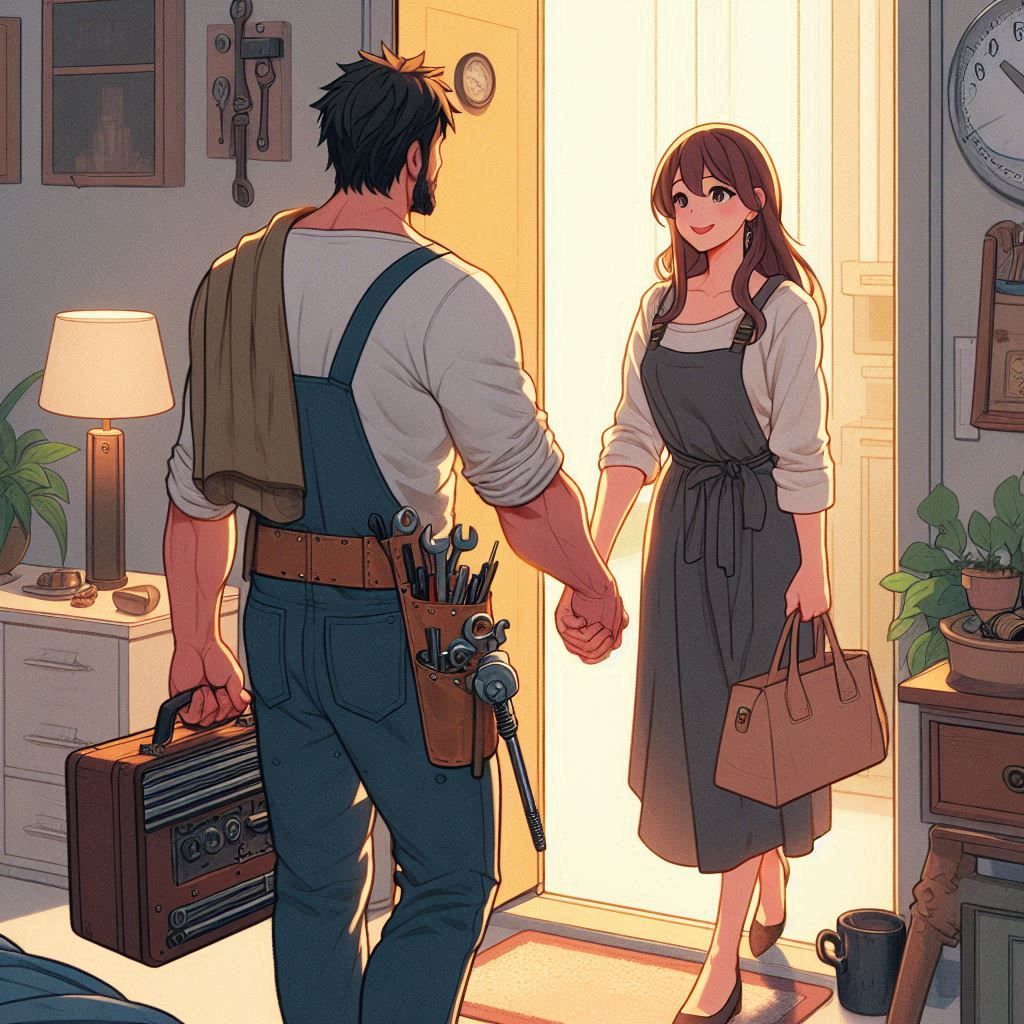
When I think about my parents and what they were doing at my age, I’m struck by how different their lives were from mine—and yet, how much I can learn from the way they navigated their roles, responsibilities, and relationship. Their story is a testament to the beauty of partnership, even in the absence of what we might now call “equality.” It’s a story of balance, mutual respect, and an unspoken understanding that sometimes, life is about giving a little more so that the other can thrive.
My father was a self-made man, a toolmaker by trade. By the time he was my age, he was already working for himself, repairing valves and running his own small business. He had a factory—a rented space in a huge warehouse filled with his equipment and machinery. It wasn’t glamorous, but it was his. He took pride in his work, in providing for his family, and in the independence that came with being his own boss. His days were long, and his hands were often stained with grease, but he never complained. For him, his role was clear: he was the provider, the one who ensured there was food on the table and a roof over their heads.
My mother, on the other hand, was at home. Her world revolved around making sure my father had everything he needed to succeed in his role. She cooked, cleaned, and managed the household, ensuring that he returned each day to a warm meal and a tidy home. Her work was never-ending, but she approached it with the same dedication and pride that my father brought to his factory. She saw her role as just as vital as his—not because society told her it was, but because she understood that their partnership was a delicate balance. She was the caretaker, the one who created the stability and comfort that allowed him to focus on his work.
At first glance, their dynamic might seem outdated by today’s standards. There was no discussion of equality, no splitting of chores or debates about who should do what. My father had his role, and my mother had hers. But what’s remarkable is that neither of them saw their roles as diminishing the other. They didn’t keep score or resent the other for what they did or didn’t do. Instead, they lived in a kind of harmony—a give-and-take that acknowledged the ebb and flow of life.
There were times when my father had to work late into the night, leaving my mother to manage everything on her own. And there were times when my mother needed extra support, and my father stepped up without hesitation. They understood that life isn’t always fair or balanced, and that sometimes, one person has to carry a little more weight so that the other can catch their breath. But over time, they knew, these things evened out.
Their relationship wasn’t perfect, but it was rooted in mutual respect and a deep understanding of each other’s value. They didn’t need to prove who was more important because they both knew they were essential to the life they had built together. It was a partnership in the truest sense—one where they celebrated each other’s contributions and didn’t let pride or ego get in the way of their shared goals.
As I reflect on their lives at my age, I can’t help but admire the simplicity and depth of their connection. They didn’t have the language of modern relationships or the frameworks we use today to define equality and partnership. But they had something perhaps even more powerful: an unshakable commitment to each other and a willingness to give and take without keeping score.
In a world that often feels obsessed with fairness and balance, their story reminds me that sometimes, the most important thing isn’t who does what, but how much we’re willing to give—and how deeply we appreciate what the other brings to the table.
What were my parents doing at my age? They were building a life together, one valve repair and one home-cooked meal at a time. And in doing so, they taught me that true harmony isn’t about equality—it’s about love, respect, and the willingness to carry each other when the load gets heavy.
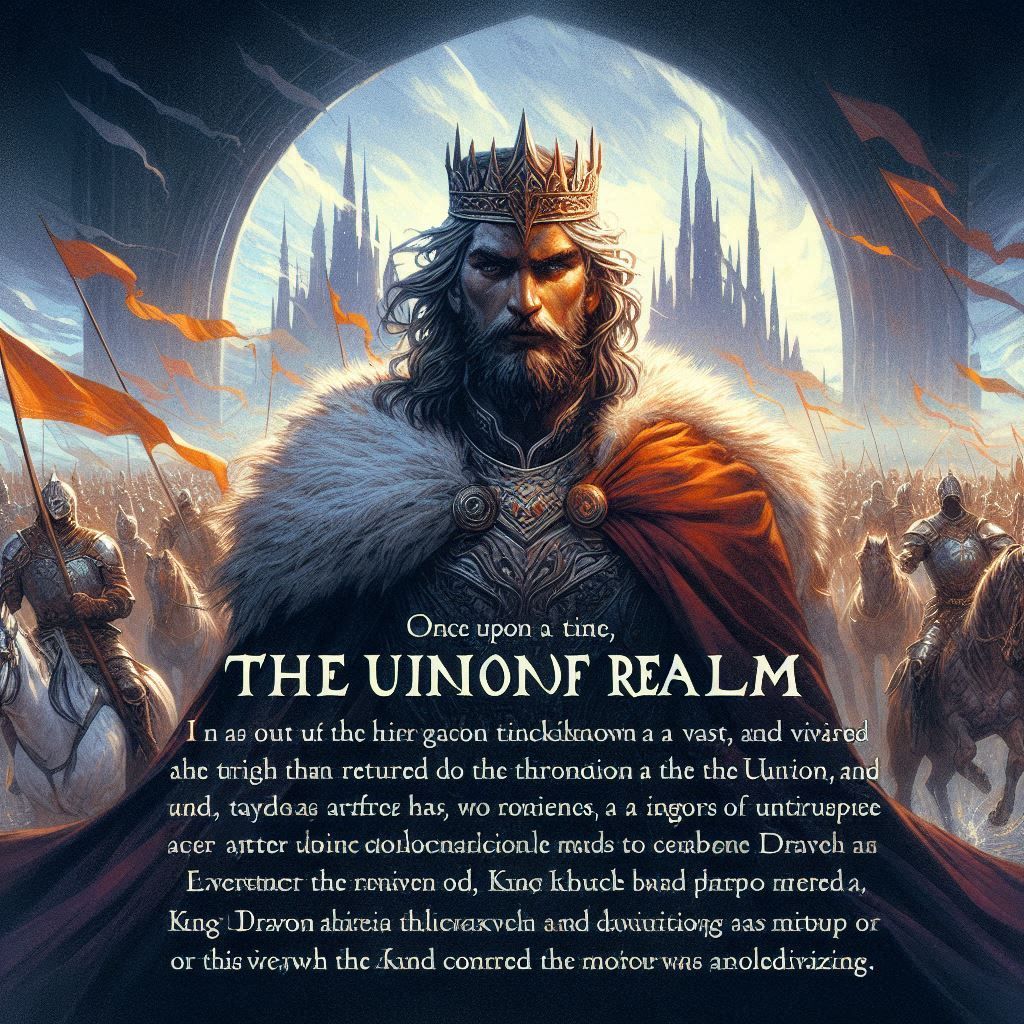
—
Act I: The Return of the King
The kingdom had endured tumultuous years under the stewardship of a different council, which had forged alliances with neighboring lands and embraced the wisdom of sages from across the world. But King Dravon, believing the kingdom had strayed from its true destiny, declared:
“We shall no longer bow to foreign councils or heed the whispers of outsiders. Our strength lies within.”
He proclaimed new decrees:
1. The Walls of the Realm Shall Rise Again – To protect the kingdom from outsiders, though it would also keep its people confined.
2. The Guild of Voices Shall Be Silenced – To weed out dissent among scholars and scribes.
3. The Council of Diversity Shall Be Disbanded – To replace inclusivity with his idea of merit and order.
Though many cheered his boldness, others in the kingdom feared the shadow these decrees cast over freedom and unity.
—
Act II: The Whispering Winds
Beyond the kingdom’s borders, neighboring lands watched with concern. The Kingdom of Concord, the Union of Allied Sages, and the Verdant Isles—all once allies—sent envoys to plead with King Dravon to reconsider his isolationist path. But their pleas fell on deaf ears.
“The Union of Realms must forge its destiny alone,” the king declared, turning the envoys away.
Yet, as the walls grew higher, so did the whispers of discontent within the kingdom. A secret council of storytellers, philosophers, and travelers formed in the shadows, determined to preserve the kingdom’s fading diversity of thought. They called themselves the Keepers of the Flame, for they believed freedom of speech and the exchange of ideas were the true light of the land.
—
Act III: The Phoenix of Rebellion
One day, a young wanderer named Aria—a child of both the Union and the Verdant Isles—arrived in the capital. Aria carried with her an ancient relic, The Mirror of Truth, said to reveal the heart of a ruler to their people. She spoke to the Keepers of the Flame:
“The king has forgotten the power of reflection. If the people see his true heart, perhaps the light of understanding will guide him back.”
Under the cover of darkness, the Keepers and Aria infiltrated the royal court. During a grand festival celebrating the king’s decrees, they unveiled the Mirror of Truth before the gathered masses.
To their astonishment, the mirror did not reflect the king’s visage alone. Instead, it revealed two images: one of a steadfast protector who sought to shield his people, and another of a fearful soul, building walls out of insecurity.
—
Act IV: The Awakening
The crowd gasped. The king, seeing himself in the mirror, faltered. For the first time, he realized the weight of his actions—not just the power they wielded, but the shadows they cast. Aria stepped forward, addressing the king and the people:
“True strength lies not in silence but in the harmony of many voices. A kingdom divided by walls cannot flourish.”
Moved by the reflection and the courage of his people, King Dravon made a choice. He decreed the walls would not rise higher, the scribes and scholars would speak freely once more, and the kingdom would rejoin the councils of the world.
—
Act V: A New Dawn
Though the journey was far from over, the Union of Realms began to heal. King Dravon worked alongside the Keepers of the Flame to foster dialogue and unity. The Mirror of Truth was enshrined in the Hall of Wisdom, a reminder that even rulers must reflect on their own hearts.
And so, the kingdom learned that freedom, like fire, must be tended carefully to keep it burning brightly.
The End.
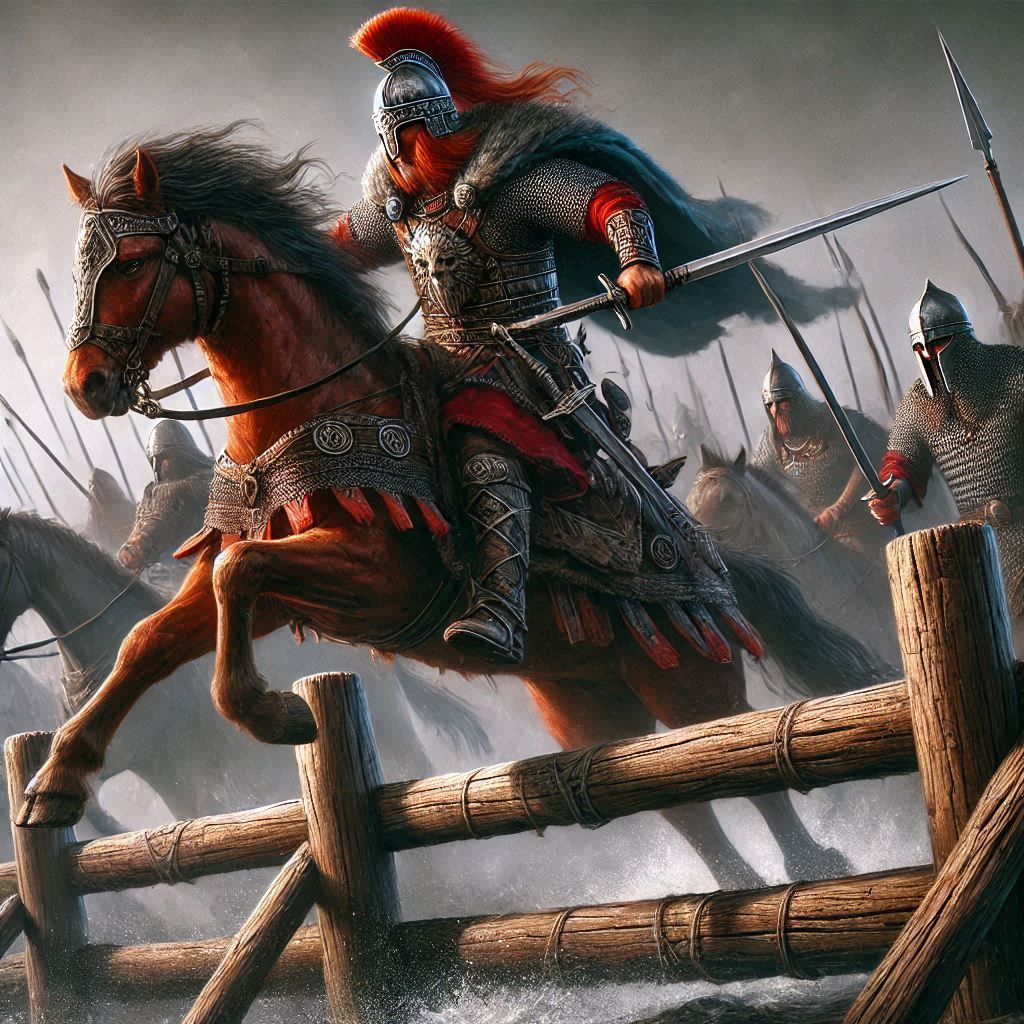
This suggests a more nuanced understanding of determinism, one where fate and agency are not opposing forces but rather complementary aspects of a greater whole. Like tributaries flowing into and emerging from the same vast ocean, our individual consciousness both receives from and returns to the collective reservoir of universal awareness. Our engagement with existence isn’t simply responsive but generative, each moment of conscious participation adding new threads to the cosmic weave.
While the broad strokes of destiny may sketch the outline of our journey, our conscious engagement with these predetermined elements – our responses, choices, and intentional actions – adds depth and detail to the final composition. In this light, fate might be understood as the canvas upon which we paint with the colors of our free will, or perhaps as the gravitational force that provides the very context for our ability to leap and soar. Just as gravity itself enables both constraint and movement, the framework of fate creates the very conditions that make meaningful choice possible.
This perspective invites us to move beyond the paralysis of pure determinism or the potential hubris of absolute free will, instead embracing our role as co-creators who work in partnership with the underlying patterns of existence. It suggests that our free will isn’t simply about asserting control, but about learning to dance with the forces that shape our lives – knowing when to direct and when to flow, when to assert and when to yield. This wisdom manifests in our ability to recognize the difference between the circumstances we must accept and those we can transform through conscious engagement.
Through this understanding, we can approach our lives with both the humility to accept what lies beyond our control and the empowerment to consciously shape those aspects within our sphere of influence. Like the delicate interplay between nature and magic, our intentions and efforts can harmonize with the underlying forces of destiny to bring forth something new and beautiful, even as we acknowledge the greater patterns that guide our journey. In this way, we become not just participants in the cosmic dance, but conscious artists of our own destiny, working within the boundaries of fate to express our unique contribution to the universal story.
This deeper appreciation of our relationship with fate calls us to develop a more subtle and sophisticated engagement with the forces that shape our lives. It invites us to cultivate both the wisdom to discern our true scope of influence and the artistry to work skillfully within it, always mindful of how our individual choices contribute to the greater tapestry of existence. Through this lens, every moment becomes an opportunity for conscious co-creation, every challenge an invitation to dance more gracefully with destiny.
© Jurgens Pieterse, All rights reserved. 2025
Are you a good judge of character?
I’ve come to realize that I’m not particularly adept at assessing people’s true nature. The act of “judging” itself is inherently flawed. It involves perceiving individuals based on limited information and personal biases, often leading to inaccurate conclusions.
My history of misjudging others is a testament to this. I frequently err on the side of optimism, giving people the benefit of the doubt, which unfortunately has sometimes backfired. Despite priding myself on wisdom and insight, I often find my initial assessments to be incorrect.
Age hasn’t improved my accuracy either. I consistently see potential in people, even latent talents they may be unaware of themselves. However, this tendency to focus on potential blinds me to their actual behaviors and choices.
The stark contrast between how I perceive people and how they actually behave is a constant source of frustration. This discrepancy highlights the limitations of my judgment and the danger of preconceived notions.
Moving forward, I’m committed to a new approach: suspending judgment. I’ll strive to observe people’s actions without preconceived expectations. This shift in perspective will not only reduce disappointment but also allow me to develop a more accurate and nuanced understanding of others.
What’s the hardest decision you’ve ever had to make? Why?
The weight of that decision, made nearly three decades into our marriage, still presses upon me. Divorce was a concept foreign to my upbringing, a taboo. Yet, here I was, facing the stark reality of a love lost and a life irrevocably altered.
My heart ached as I witnessed my wife’s growing affection for another. The once-bright spark of our love dimmed, extinguished by the passage of time and the weight of unspoken grievances. We had married young, two souls intertwined by youthful passion, only to find ourselves drifting apart as the years unfolded.
The decision to leave was a bitter pill to swallow. I knew it was the right choice, yet it felt like a betrayal of my family’s values, a shattering of the illusion of a perfect life. The loneliness was profound, the fear of the unknown all-consuming. I carried the burden of my decision alone, a solitary figure navigating the turbulent waters of divorce.
In hindsight, I realize that I had neglected my wife, prioritizing work and personal pursuits over our relationship. I failed to nurture the connection that once bound us, and in doing so, I sowed the seeds of our eventual separation.
Though the pain of divorce lingers, I find solace in the knowledge that I made the right choice. It was a difficult path, marked by sorrow and regret, but it led me to a place of acceptance and healing.
What does it mean to be a kid at heart?
To be a kid at heart is to channel your inner five-year-old without the tantrums (well, most of the time). It’s about seeing the world through a lens of pure, unadulterated wonder, even if that means questioning why clouds are fluffy or why adults wear such strange clothes.
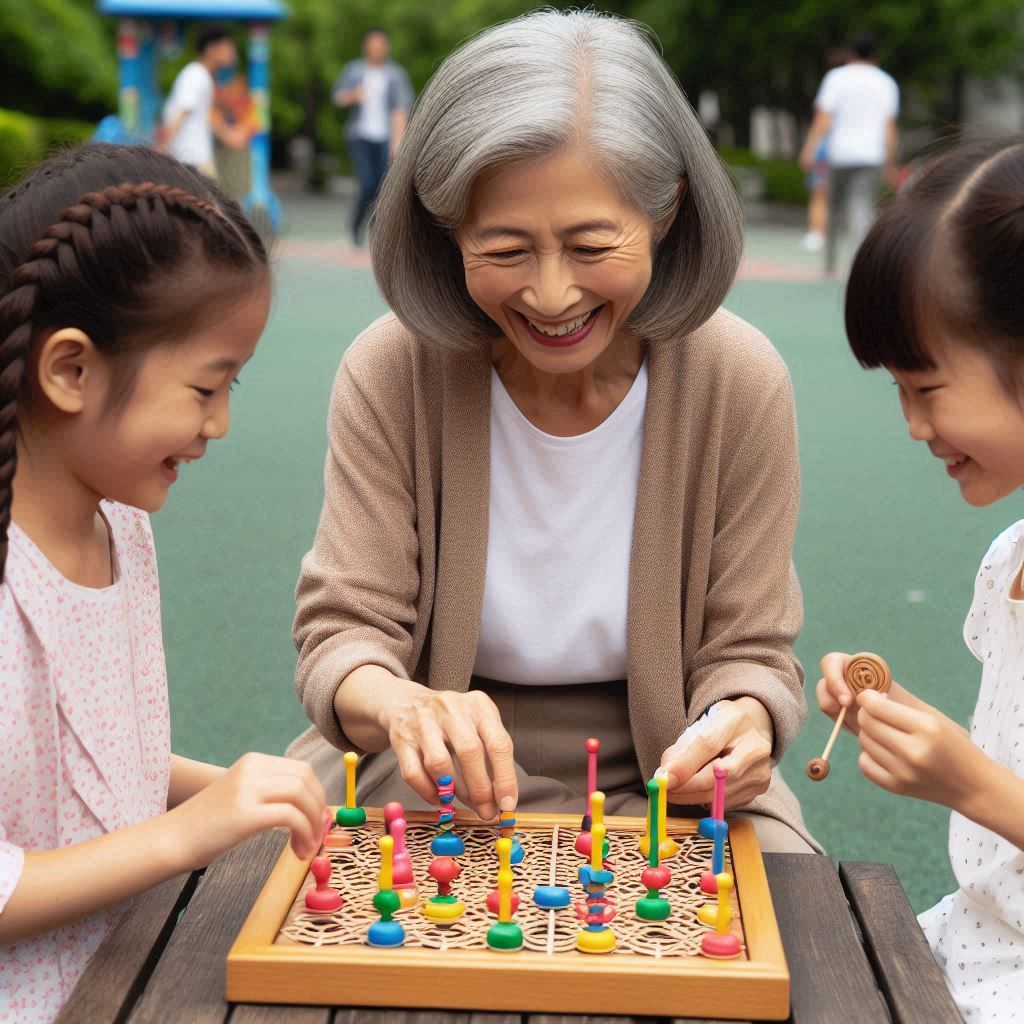
A kid at heart is someone who still giggles at knock-knock jokes, finds joy in puddle-splashing, and believes that every day is a potential adventure. They’re the ones who still believe in magic, whether it’s the magic of a good book or the magic of a perfectly timed pizza delivery.
They’re the ones who still get excited about birthday parties, even if they’re the ones buying the cake. They’re the ones who still sing along to their favorite songs, even if they’re off-key. And they’re the ones who still believe that anything is possible, no matter how crazy it sounds.
So, if you’re someone who still finds joy in the simple things, who still believes in the power of imagination, and who still has a twinkle in your eye, then congratulations, you’re a kid at heart.
What major historical events do you remember?
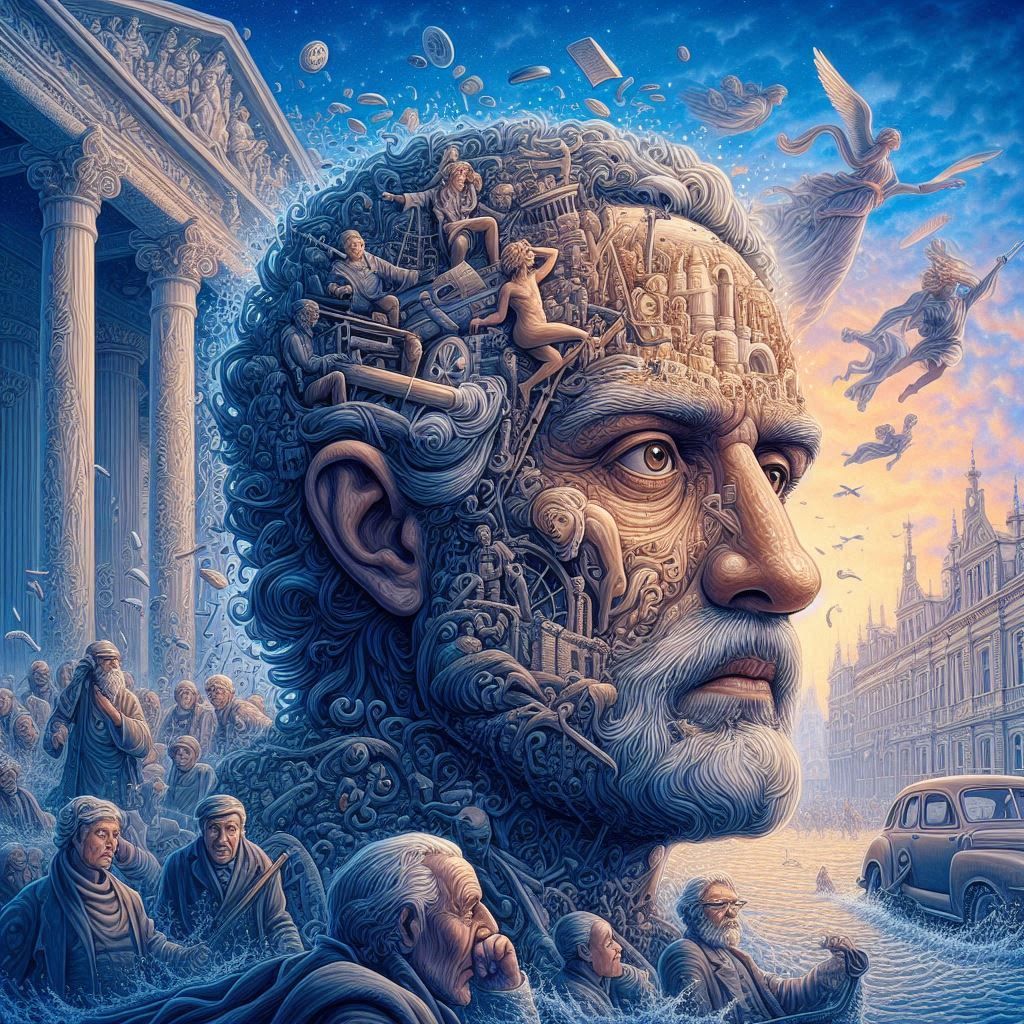
Let me tell you, folks, feeling old and valued at the same time is quite the paradox. But when you’ve witnessed history unfold before your very eyes, it’s a feeling that becomes all too familiar.
I was still in diapers when the moon landing happened, but the images of Neil Armstrong taking that giant leap for mankind were burned into my psyche. The awe and wonder I felt then have never truly faded. And let’s not forget the Mars rovers, the Hubble telescope, and the heart-wrenching Challenger disaster. Space exploration has been a constant in my life, a reminder of humanity’s boundless curiosity and resilience.
Closer to home, I’ve seen South Africa transform from a nation divided by apartheid to one united by democracy. The release of Nelson Mandela was a moment of profound hope, and witnessing the country’s first free elections was truly a privilege. Though there have been challenges and setbacks, the progress made is undeniable.
Of course, life isn’t always sunshine and rainbows. I’ve witnessed the devastation of natural disasters, from the 2004 tsunami to the countless wildfires and droughts. And let’s not forget the global pandemic that turned our lives upside down. It was a time of fear, uncertainty, and isolation, but it also brought out the best in many people.
On a lighter note, I’ve seen the Springboks dominate the rugby world cup, cheered on Gerrie Coetzee as he became the first South African world heavyweight boxing champion (back when we had to listen to fights on the radio!), and witnessed the rise of Dricus du Plessis as a modern MMA superstar.
Oh, and let’s not forget about Mark Shuttleworth, the first South African to travel to space as a tourist. I remember waving the flag with pride and dreaming of one day following in his footsteps. Maybe I’ll settle on Mars one day… who knows?
Then there were the events that shook the world: the 9/11 attacks, a tragedy that unfolded before our very eyes, and the Iraq War, a conflict that was as divisive as it was devastating. These were times of great uncertainty and fear, but they also brought out the best in many people.
And let’s not forget about the incredible technological advances that have transformed our world. From the explosion of the personal computer to the internet, and now the remarkable advancements in artificial intelligence, we’ve witnessed the future unfold before our eyes.
As I look back on my life, I can’t help but feel a sense of gratitude. I’ve been privileged to witness history in the making, to experience both the triumphs and the tragedies of humanity. While I may not have changed the world, I’ve certainly been a part of it. And that’s something to be proud of.